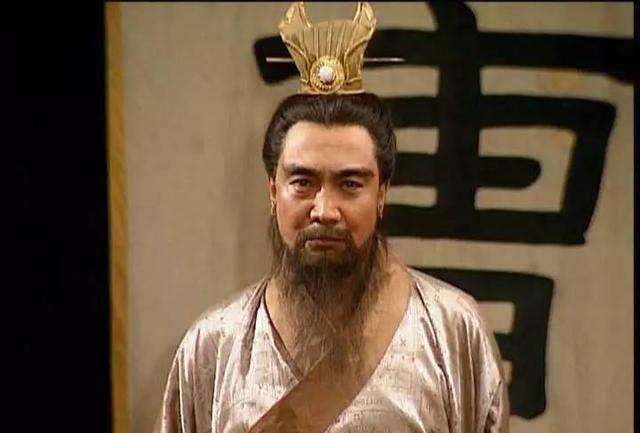After the proverb "Say Cao Cao, Cao Cao to", there is another sentence. The allusions behind these two sentences are related to Cao Cao.
The so-called "say Cao Cao, Cao Cao to" refers to the fact that after Dong Zhuo's death, although Emperor Xiandi of Han was temporarily out of the risk of being killed, the imperial court was still controlled by the warlords of the Western Liang clan, and even the warlords were fired and caused the displacement of Emperor Xian of Han, no different from Qi'er. It was suggested that when Emperor Xian of Han went to Cao Cao to be king of Qin, Emperor Xian of Han happened to encounter Cao Cao's troops. So there is this sentence: say Cao Cao, Cao Cao.

The second half of the sentence is about the story of Cao Cao when he was still weak and weak, and when he and the warlord Lü Buhuo were at odds.
Cao Cao crusaded against Lü Bu, and Lü Bu had courage and strategy, and of course was not put in cao Cao's eyes. However, Chen Gong, who had gotten along with Cao Cao, knew that if Cao Cao did not get rid of this person early, it would inevitably be a big problem. So Chen Gong assisted the brainless Lü Bu to deal with Cao Cao.
Chen Gong planned to get rid of Cao Cao once and for all, and he instructed the rich people in the city to secretly contact Cao Cao, saying that the people in the Puyang area were willing to submit to Cao Cao, and only hoped that Cao Cao's army would not harm the rich family after entering the city, and that the rich people were willing to do internal responses and cooperate with Cao Cao to take Puyang.
Cao Cao had no doubts about the rich man's claims. After all, Lü Bu, a rough man, was also reasonable in the natural anger and resentment of the jurisdiction, so Cao Cao led his army to sneak into Puyang City under the "reception" of the rich.
Just when Cao Cao felt that Puyang was within reach, the style of painting changed - the ambush soldiers came out of the shadows, Cao Cao's troops were in a mess, Cao Cao had to find a way to escape, but the road was narrow, and Cao Cao, who was looking for an escape route, actually met Lü Bu, who was looking for him everywhere.
However, Cao Cao is Cao Cao, and at this time, he shows a strong psychological quality of a generation of tyrants: Cao Cao stabilized his panic, and then patted his horse to meet Lü Bu, while covering his face with his hands, planning to rub shoulders with Lü Bu.
Cao Cao, who had just passed by Lü Bu, was suddenly chased by Lü Bu back to his horse, and Lü Bu smashed Cao Cao's helmet with his Fang Tian Painting Blade and asked: Where is that old boy cao Cao?
Cao Cao's mental quality at this time was unusually good, as if Cao Cao and himself were two people, calmly pointing to a person riding a yellow horse in the distance and saying: Look, that person is Cao Cao.
Of course, it is not that Lü Bu is so good at cheating, but no one can imagine that a person who is being hunted down and killed by himself dares to meet himself in the middle of his life, not to turn around and run but to face it head-on, and to encounter danger, he can also maintain a good attitude.
To this end, the literary critic Mao Zonggang commented on such a sentence at the end of this paragraph: Isn't it funny to miss it in person?
And this sentence is the second half of the sentence "Say Cao Cao, Cao Cao to". It's just that the second half of this sentence is generally used in sarcastic situations, so most people rarely use it to avoid injury and anger, resulting in a low frequency of application of this sentence.